|
Richard Hunn (1949-2006) passed away 17-years ago (as of October 1st, 2023). He was just 57-years old - having suffered from a short but devastating illness (Pancreatic Cancer). As with any good Ch'an Master - Rixhard Hunn tended to refuse any formal titles or awards - as he felt such baubles weighed-down a practitioner diverting the awareness away from the 'host' and toward the 'guest'! Besides, Charles Luk bestowed upon him the Dharma-Name of 'Wen Shu' - the name of the Bodhisattva Manjushri who appears all the way throughout the Buddhist Sutras - spreading his 'wisdom' and 'compassion' to all and sundry! After emigrating to Japan in 1991, Richard Hunn decided to carry-out a pilgrimage to Mount Fuji! For reasons only known to himself - this journey was carried-out in the depths of Winter - when the wind blew and the snow fell! When things were looking bleak - a person appeared out of nowhere and helped Richard Hunn seek-out assistance! A passing Senior Police Officer decided to take Richard into Custody whilst he investigated his background and motives. He was surprised when Richard started to converse with him in the Japanese language. When the Officer had sat and discussed Zen for an hour in a comfortable Police Station (whilst Richard was given a warm meal and drink) - The Officer ordered that Richard be driven to the peak of Mount Fuji and given a hotel room usually reserved for the Police! This was apparently out of respect for Richard's understanding of Zen - and his mastery of the Japanese language! Interestingly, around 2002 Richard visited my family home in Sutton (South London). I eventually introduced him to my Hakka Chinese grandmother - and to my astonishment he started talking to her in the Hakka language! She was taken by as much surprise as was I! Apparently, he had known a number of Hakka Chinese people at Essex University (I believe from Malaysia) who were members of the University's Chinese Buddhist Association. This ethnic Chinese group actually voted Richard to be the 'President' - the only non-Chinese person to have held that post up to that point! I believe this was during the late 1970s - when he also participated in the Multicultural Department of BBC's Pebble Mill (a general education and entertainment programme). Richard often arranged for British Buddhist content to be filmed and broadcast. He was personally responsible for a documentary covering the Thai Buddhist Temple (Buddhapadipa) situated in Wimbledon! Richard Hunn had spent an extended time sat meditating in that temple - with the Thai Head Monk suggesting that he became a Theravada Buddhist monastic! I watched this programme as a child - and only many years later would I meet Richard Hunn - and eventually take my place in the Meditation Hall of Buddhapadipa! Charles Luk had said that the empty mind ground underlies ALL circumstances an that it does not matter where we train just as long as we effectively 'look within' with a proper intensity and direction! Whilst Richard Hunn was establishing himself in Japan - he suggested that I travel to a Theravada country and train 'at the source', so-to-speak. This is how I ended-up training under Mangala Thero (in 1996) at the Ganga Ramaya Temple (in Beruwela) - situated in Sri Lanka. I have subsequently discovered that Mangala Mahathero has passed away after spending the last decade of his life living and meditating in isolation. I am told that Richard Hunn would sit 'still' for hours on end in various Zen Temples throughout the Kyoto area. Although outwardly he was practicing 'Zen' - inwardly he was practicing 'Caodong' Ch'an - the preferred lineage of Master Xu Yun (1840-1959). Although none of us know how long we will be on this Earth - we must remain vigilant and use our time effectively and productively! Not a single second must be wasted when it comes to self-cultivation! Instead of reading this board - look within! At this time of year I usually contact Richard's widow - Taeko - and offer my respects!
0 Comments
Chinese Ch'an is the method of permanently altering one's perception. This is achieved by changing 'how' and 'where' the individual places their 'attention'. The default setting for human-beings - which is linked to the evolutionary drive to survive - requires the general attention to be fixed upon the sensing of permanent (external) stimuli - as mediated through the six sense-organs. Modern science, of course, informs us that there are many more than just the assumed 'five' senses in the West (perhaps as many as 'thirty') - but these further senses are in fact specific aspects (or elements) of perception - and easily fall within the Buddha's schematic of defining the 'mind' as a 'sense'. Human ancestors had to be acutely 'aware' of their surroundings if their chances of survival were to be enhanced. After the development of the human mind, body and environment - settled human culture allowed individuals to contemplate their existence. As much of this is speculative in nature - it falls under the subject of religion and spirituality - with the modern trend involving secularised conspiracy theories. The point is that there are many 'external' places (the 'guest' position) where individuals are able to place their awareness. It does not matter what belief system sustains this 'externality' - as the 'guest' position is NEVER left. The Chinese Ch'an tradition offers a methodology to alter, shift and change this orientation. Chinese Ch'an does this by transitioning the default setting of human perception away from the 'guest' position - and toward the 'host' position. The 'host' position is comprised of the empty essence that underlies ALL perception. Therefore, it does not matter where an individual lives, when an individual lived - or the culture that defines the prevailing material conditions - the empty mind ground will ALWAYS underlie whatever physical structures the conditioned elements construct. Today, many spiritual schools are content to pursue a material path that encourages adherents to become attached to this or that outward manifestation - often for a large fee! Being 'attached' to whatever form of externality that takes your attention is not difficult and you certainly do not need another's permission or guidance to attain it. This is why a genuine Ch'an teacher is often unpopular in the world of material externality - as he or she continuously speaks and acts from the 'host' position. The genuine Ch'an teacher is a beacon of stable hope in a sea of changing uncertainty - as was the example of Master Xu Yun (1840-1959). In the meantime, words, silence, actions, and inactions - all serve to turn the adherent's attention BACK (inward) toward the empty essence of ALL material experience. If you are looking for the confirmation of your existing views and opinions (the 'guest') - then you have come to the wrong place. There are many 'businesses' out there that will sell you a robe and an ordination certificate. How's that for unpopularity?
There is a significant difference between the falling into the state of ‘dull’ nothingness (as warned against by Master Xu Yun) and the realisation of genuine ‘emptiness’ within traditional Chinese Ch’an training. The difference must be properly understood if progression is to be made. a) ‘Nothingness’ (Pali 'Akincanna’) - or ‘No-Something-Ness' - is the falling into ‘dull’ nothingness often mistaken as the realisation of genuine ‘emptiness’ and ‘enlightenment’ - which is still ‘post-thought’ in manifestation. b) The realisation of genuine ‘Emptiness’ (Pali ‘Sunnata’) or relative enlightenment is ‘pre-thought’ - as the empty mind ground is what is perceived when no thoughts arise. What does this mean? Dull nothingness (akincanna) is a thought form with a non-descript content. In other words, a thought is generated which is defined by the usual boundaries and parameters that constitute the average structured ‘thought’ form - but the meditator misunderstands this ‘non-descript’ content and mistakenly grasps it as being the empty mind ground. The trap here is that a manifest ‘thought’ (and stream of thought) is masquerading as the psychic fabric from which all structured thought arises – and which pre-exists all thought. This state is mistaken as complete and perfect enlightenment and those trapped within it start misleading others down the wrong path. By way of contrast, the state of genuine ‘emptiness’ (sunnata) is realised when all thought generation ‘ceases’ at its source – and the empty mind ground manifests and becomes apparent as its presence is no longer obscured by the continuous stream of thought which normally traverses the surface mind. No thoughts arise whatsoever and so the empty mind ground becomes perceivable. As there is a sense of ‘constriction’ - this genuine state of ‘emptiness’ realisation is termed ‘Sitting atop a hundred-foot pole’ (which is symbolic of Hinayana enlightenment), as it is accompanied by a sense of ‘peace’ and ‘tranquillity’ - but a further stage of training is required.
A number of people have enquired about Richard’s life in the UK pre-1991. Like everyone who lives within lay-society, life tends to have its ups and downs. The life of Richard Hunn was no different. He was born in 1949 – a time in the UK that still had ‘rationing’ and when the country was still recovering from the devastation of WWII! When he passed in 2006, he was 57-years-old and if he were alive today – he would be 71-years-old! The point is that physical life goes on through its various cycles and whether we go on with it is a matter of genetics, personal choices and events in the world which are beyond our control. Richard was married in the UK in the early 1970s and eventually had two children. He had many adventures in this segment of his life and knuckled-down to a) realize the empty essence of his mind under the guidance of Charles Luk (1898-1978) and b) perfect his translation skills of the Chinese language into English. Of course, Master Xu Yun (1840-1959) passed away in his 120th year when Richard was just ten-years-old – whilst Charles Luk passed away at the age of 80-years-old in 1978 when Richard was 29-years-old. Between 1978-1991 (13-years) Richard raised a family and perfected his extraordinary perceptual and linguistic skills. As with many other people living in the world of ‘red dust’ - personal relationships often evolve into new areas of being which no longer involve compatibility on the physical, emotional, psychological and spiritual planes – and this is exactly what happened between Richard and his then partner. Despite going through the turmoil of a failing relationship (which had many peculiar aspects to it) Richard Hunn never once mentioned this when communicating the ‘host’ position to me over a three-year time period.
Always emphasized in his words was the realization of the ‘empty mind ground’ - and nothing else (c. 1989-1991). I would only find out the true extent of the physical chaos when Richard and I became good friends around 2000 (as opposed to just ‘Master’ and ‘Student’), and he would spend hours telling me details to be recorded and stored away for future reference. A young man named Mark Dunlop had escaped from being held as a sex-slave in the bedroom of ‘Dennis Lingwood’ (during the late 1980s) - the founder of the ‘Friends of the Western Buddhist Order’ (FWBO) - and made his way to the Norwich home of Richard asking for help. Following this, the FWBO launched a highly aggressive hate-campaign against Richard Hunn for daring to expose Dennis Lingwood as being a sexual predator. In the 1960s, Lingwood had been an ordained Theravada Buddhist monk in India, but had been caught sexually abusing young boys when he was on the morning begging rounds in the local impoverished villages. The Indian Authorities had him ‘Deported’ back to the UK where Christmas Humphreys (the ‘QC’) and Head of the Buddhist Society used his influence as a freemason to prevent Lingwood from facing the judicial consequences of his crimes. Even today I am contacted by more and more people who have subsequently fallen prey to Lingwood’s sexual offending! As Lingwood lived in the Norwich area – this is where the FWBO Cult was then based (to escape the controversy of Lingwood’s sex-offending, the group has since changed its name to ‘Triratna’). On top of this, a local Catholic priest had informed Richard’s then partner that the moral safeguards protecting the dignity of individuals in the community did not apply to Richard – as he was a ‘non-believing’ heathen. This allowed any and all kinds of outrageous behaviour to ensue premised mostly upon a mindset motivated by raw ‘jealousy’ and a sense of intense inner ‘weaknesses and lack of ‘self-control’. Although their many incidents recorded, one that stands out is that a rich businessman impressed with Richard’s Ch’an instruction had come to visit Richard in his Norwich home to discuss the handing over of the deeds to a large country house situated in the Irish countryside. The house was to be given to Richard ‘free’ providing it could be used as a Centre for the practice of authentic Chinese Ch’an. The owner had experienced the other schools in the West and found them wanting. As Richard was sat discussing the transaction with the businessman – a loud smashing and crashing could be heard from outside. As the two ran outside to see what was happening – they found Richard’s then partner striking the windows, mirrors and bodywork of the businessman’s brand-new car with a hammer! Of course, the deal with the house fell through! This text is from Charles Luk's English translation of Master Xu Yun's Chinese Language biography rendered into English as 'Empty Cloud - The Biography of the Chinese Zen Master Xu Yun' (compiled by Xen Cue Lu) and edited by Richard Hunn (1988) - Published by Element Books. The Copyright to this text belongs to the Luk family - particularly Irene Luk - the daughter of Charles Luk.
Master Xu Yun (1840-1959) was adamant that everyone follows the Vinaya Discipline. Of course, although the Buddhist monastics have to follow all the hundreds of rules – the laity have to follow fewer (minus the ‘celibacy’) rules – but those that are followed are still ‘Vinaya’ rules. This is as well as the Bodhisattva Vows - which monastics and laity generally follow (as they do not demand ‘celibacy’). Therefore, a firm ‘moral’ (Sila) base is established that limits bodily movements and assist in the ‘stilling’ of the mind. Buddhist morality advocates psychological and moral ‘non-attachment' to worldly sensation. This in-turn prevents a stimulation of the mind that generates and encourages greed, hatred and delusion. With the three-taints ‘cut-off’ - the practitioner can effectively focus all their efforts upon looking within and realising the empty mind ground. Furthermore, there is a belief within Buddhist culture that by following a morally pure existence an individual guarantees a good rebirth either as a human-being or in one of the divine ‘heavens’ reserved for people who have acquired very good karma but who are not yet enlightenment. Taking this model into account, a devout ‘Buddhist’ guarantees a future rebirth free of the suffering generally associated with the lower realms of demi-gods, spirits and hungry ghosts, etc. Simply following moral rules, however, does not guarantee enlightenment even if it does generate a morally pure behaviour and conduct. Unless a Buddhist practitioner ‘looks’ firmly and carefully into the interior of the mind – and perceives the empty mind ground – no mind-development can take place. This means that although following arbitrary rules of conduct creates pure karma – this process in and of itself does not break the practitioner ‘free’ of the ‘samsaric’ cycles within which humanity in trapped. Just as the moral force of good karma eventually runs-out – an individual is then propelled back into the lower realms of existence to start the process all over again. This means that ‘suffering’ is transformed in a number of ways – but is never transcended and overcome. The Buddha’s path requires that the ridge-pole of karmic ignorance is permanently ‘broken’ once and for all, and for this to happen, morally purifying action must be undertaken so that the Buddha’s meditational methods can be fully applied in an efficient manner. If a person immorally behaves in the world and reinforces greed, hatred and delusion, then no amount of meditation will ‘uproot’ the three-taints and ‘clear’ the surface mind. Indeed, in such a situation, meditation in such a situation might well have the effect of strengthening and magnifying the three-taints and making their presence ever more obvious and domineering! Precepts, therefore, only work if the attention of the mind is firmly ‘turned within’ so that the meditator can clearly perceive the underlying reality of the empty mind ground. This is the exercising of the ‘Mind Precept’ as taught by Master Xu Yun and which is part of the Caodong Ch’an tradition. This is clearly explained throughout the Vimalakirti Nirdesa Sutra whilst never being mentioned by name. Unless the Buddhist method is being firmly applied to the mind – then all the precepts are relegated to ‘karma-purifiers’ and lose their enlightening function as ‘mind-realisers’. The hua tou and the gongan, for instance, are Ch’an methods for effectively ‘looking within’ - and it is through ‘looking within’ that the ‘Mind Precept’ is established. The empty mind ground is the essence of a) the mind and b) all phenomena. This means that all the hundreds of precepts of the Vinaya Discipline have the empty mind ground as their origination – with the understanding that this can only be known by ‘looking within’ and realising it as being so. By ‘looking within’ - the surface mind is ‘stilled’ and greed, hatred and delusion is fully and permanently ‘uprooted’. The emptiness of the mind eventually expands and becomes ‘all-embracing’ as it envelops all phenomena. This is how the ‘Mind Precept’ underlies all precepts and should serve as the foundation of genuine Buddhist self-discipline.
Dear Venerable
We must navigate our way through the tangle of worldly pathways until it is time to transition to whatever comes next (if anything). I always remember your kind postcards and inspiring emails. You certainly seem to possess a sincere and deep connection with the Dharma. Master Xu Yun (1840-1959) would have been intrigued by your commitment, energy and ongoing Dharma-work! He always thought about the West and how the Dharma could be spread to help the ordinary people. This is probably because he met a surprising number of Western people during his very long life! I have spent a number of years carefully working my way through old Chinese texts and making extensive notes - keeping an eye on the dates and times, as well as the locations and the individuals involved. Every time I add up the years and cross-reference the dates and locations - the chronological age of Master Xu Yun always comes to 119-years-old - with him dying within (and during) his 120th year of life! I was once contacted by a Western scholar who was determined to prove Master Xu Yun's age 'wrong' and to suggest Master Xu Yun was 'lying'. He provided a photograph of an engraved tomb-stone in China which appear to suggest that Master Xu Yun was born in or around 1859! I located this stone and flew-out to China with permission to investigate. It transpired that once the moss and dirt was cleaned away - the date actually said '1839' rather than '1859'! The Chinese language numbering had been completely obscured but when restored it read '一千八百三十九' or more specifically the '20th year of the reign of the Emperor Daoguang'. This suggests that the Western solar years 1839-1840 span the single Chinese lunar year which began on February 3rd, 1840 (which was the 'Metal Rat'). However, the Emperor Daoguang ascended the throne on October 3rd, 1820 - whilst Master Xu Yun was born on August 26th, 1840 (according to Charles Luk's calculations). This is probably an editing error and should read 'August 29th' according to my research. As '1820' is counted as 'year 1' of Emperor Daoguang's reign (meaning that '1839' is year twenty of his reign) - it follows that any date before 'October 3rd' 1840 falls within the twentieth year of Emperor Daoguang's reign - and therefore Master Xu Yun was indeed born in the twentieth year of the reign of Emperor Daoguang. If he had been born on or after October 3rd, 1840, then Master Xu Yun would have been born during the twenty-first year of the reign of Emperor Daoguang! You are probably aware that within Chinese culture, when a baby is born - he or she - is already considered 'one year's old'! This habit of counting the first year as 'one' was used in dating and measuring reigns, etc, with another year added to a person's life when they died (out of respect)! With Metta Adrian Knowing when to ‘assert’ and when to ‘give-way’ are important attributes for any spiritual traveller. As human-beings, we can find ourselves in all kind of circumstance as the day unfolds and our life progresses. Much of this will be mundane, but occasionally reality will take a shocking turn for the worst! No one saw the Covid19 pandemic arriving and virtually everyone was taken by surprise – despite numerous horror films over the years expressing narratives involving dystopic futures on a planet ravished by some type of illness, plague or other torturous device! Usually, such story-lines involve society collapsing back into an armed feudalism where brutality is the order of the day. Only the strong survive by preying on the weak. Of course, due to poverty and asymmetric economic development around the world, many people already live in these hellish conditions. I would add that even within the so-called ‘civilised’ areas of the world – killing and barbarity still exists – although it is hidden to a far greater extent (like a bad dream that people would rather forget). Most people grow-up in the world learning to survive. Indeed, this is a crucial and necessary skill. It is not the skill of the huntsman or gathering skills of the scavenger – but rather the ability to navigate the character and personality of our fellow human-beings. Children can be cruel and adults can be deceptive – for many these observations are facts of life. This imbalance in the inner and outer environment must be dealt with in one way or another. Ch’an is not an easy undertaking because it requires a devoted self-effort to take on our own inner world before we set about attempting to make changes in our outer worlds. Many will attack and ridicule any attempt at self-discipline – but for the world to be a better place – self-discipline is exactly what is required. Looking within with clarity and steadfastness eventually develops to looking without with wisdom and knowledge! Our personal circumstance can vary wildly through our lives. Many will experience poverty, homelessness, abuse and all kinds of deprivations – whilst others will experience only affluence and relative well-being, etc. The point is that regardless of the differences that define our outer existence, the empty mind ground is exactly the same for all beings! Master Xu Yun (1840-1959) lived a life continuously ‘gazing’ at the empty mind ground without any deviation whatsoever! More to the point – Master Xu Yun integrated his expedient self (or that which will eventually fall away) with the permanent and ever-present empty mind ground! Regardless of the situation he found himself in, or the circumstances he had to traverse – Master Xu Yun judged human reality not from the ego infected with greed, hatred and delusion – but rather from the pure and clean empty mind ground which underlies all reality and permeates the universe without end! Knowing where to place oneself in the phenomenal world - so as to maximise compassion, wisdom and loving kindness – is exactly possessing the skill of ‘moving’ and remaining ‘still’ in all situations!
Dear Ben Walter Liebenthal - Chinese Source https://read01.com/zh-cn/K457R5.html#.YDJpWKsYA2w According to this, it says that: '1937年记载“德国柏林大学哲学博士李华德,拟译《肇论》, 以疑义来访(太虚)大师.' 'In 1937, it was recorded that "Walter Liebenthal (Li Huade - 李华德), a Ph.D originally from the University of Berlin, Germany, intended to translate the "Zhao Lun". However, as he had 'doubts' about its content and meaning, he visited the Great Master Taixu (太虚) to ask for his advice.' Master Taixu (1890-1947) was a forward-thinking Buddhist modernist - although his views do not always 'agree' with those held by the more traditional Chinese Buddhist Masters alive in China today. It is interesting that Walter Liebenthal never thought to approach Master Xu Yun (1840-1959). Walter Liebenthal preferred Chinese Buddhism and developed the idea that the Chinese cultural system 'purged' Buddhism of all its 'Indianness' and imported Confucian and Daoist influences into its place. This seems overly simplistic to me - particularly as so much of the rhetoric of Ch'an, for instance, insists upon an Indian origin (imagined or actual). Buddhism is definitely viewed as 'foreign' within Chinese culture, and certainly not 'Chinese' in origin. It is similar to how Buddhism in the West is often viewed through the lens of the Judeo-Christian tradition simply because this tradition was already here and thoroughly familiar when Buddhism arrived. The use of Judeo-Christian paradigms to interpret Buddhism does not necessarily mean that a 'deliberate' sanitisation of 'Asian' Buddhism occurred in the West - even if the effect may have appeared similar in certain aspects. Just so, the early transmission of Buddhism into China was 'filtered' through the apparatus of an existing State Confucianism and the popular Daoism (practiced amongst the ordinary people)! With Metta
Adrian |
Archives
March 2024
Categories
All
|
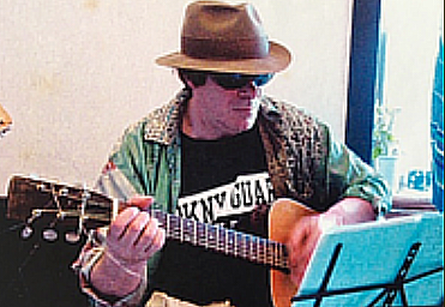
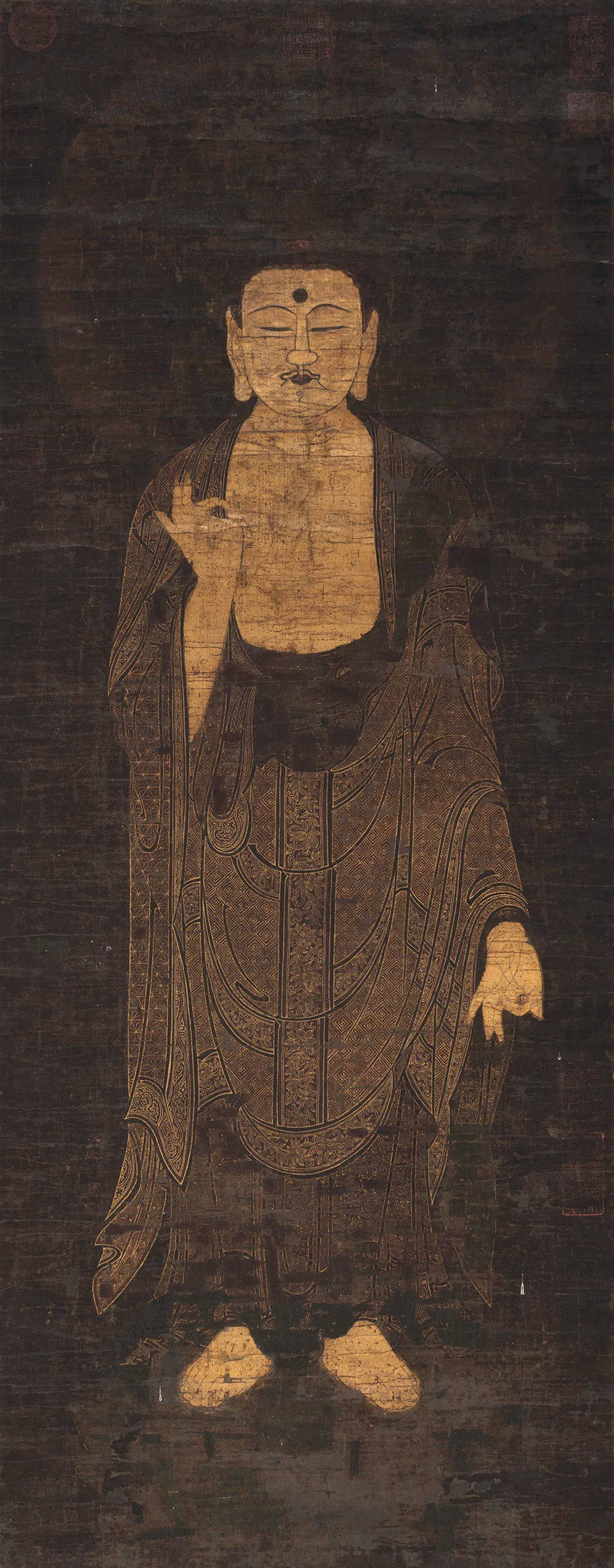
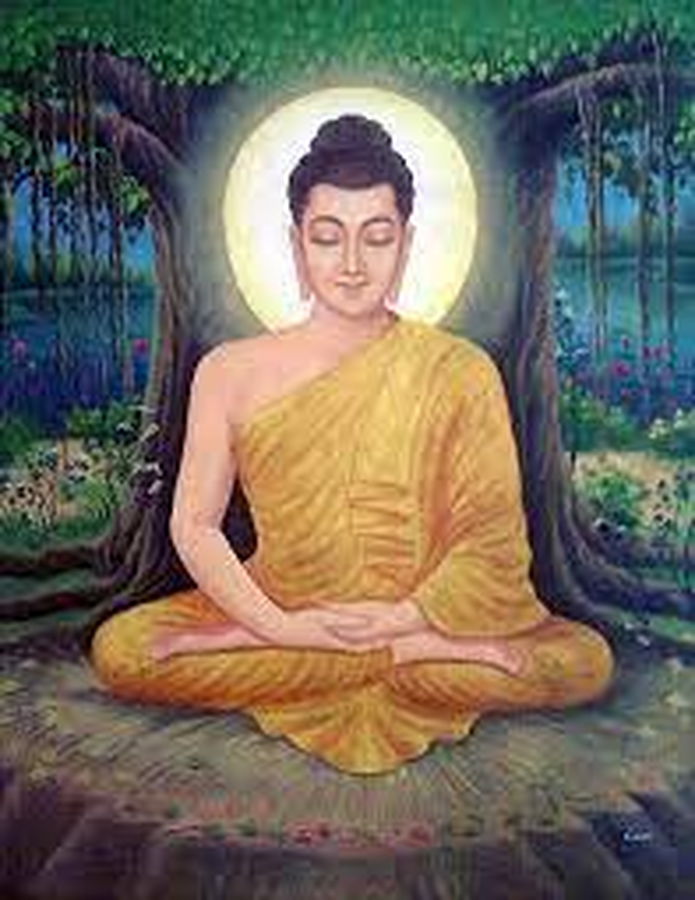
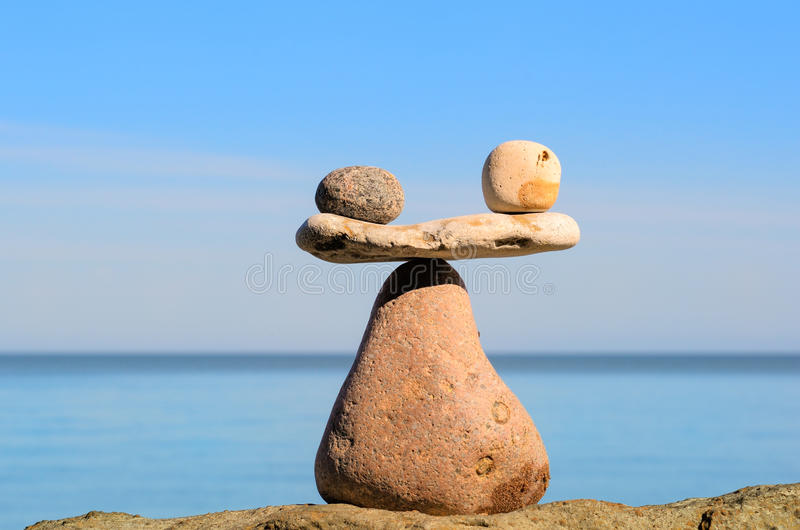
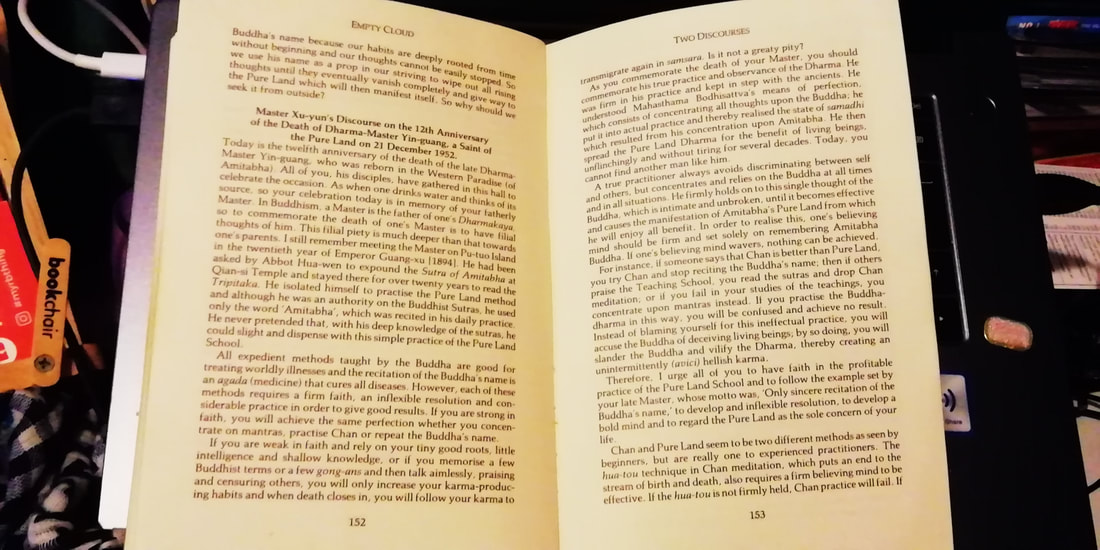
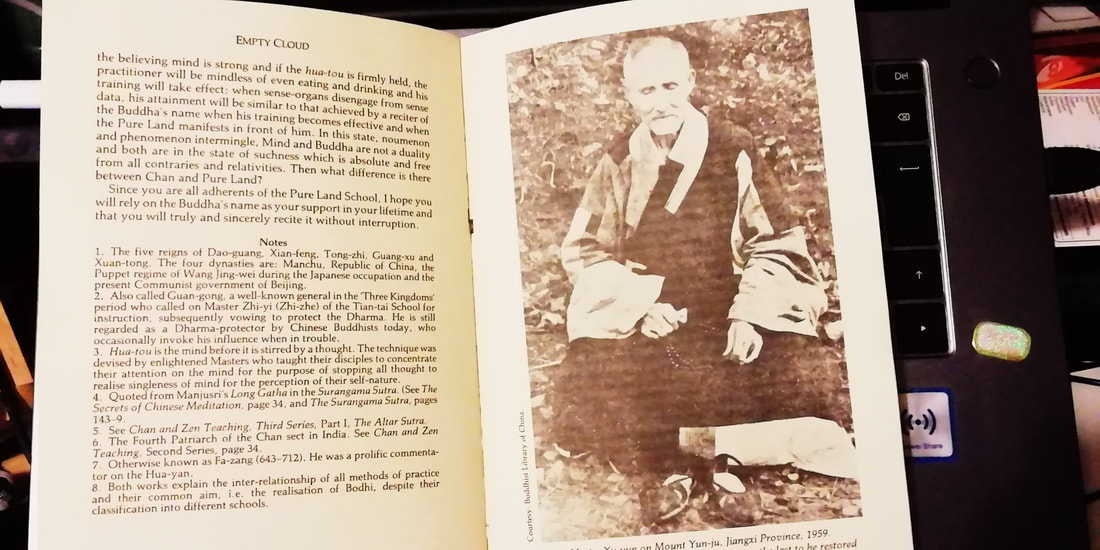
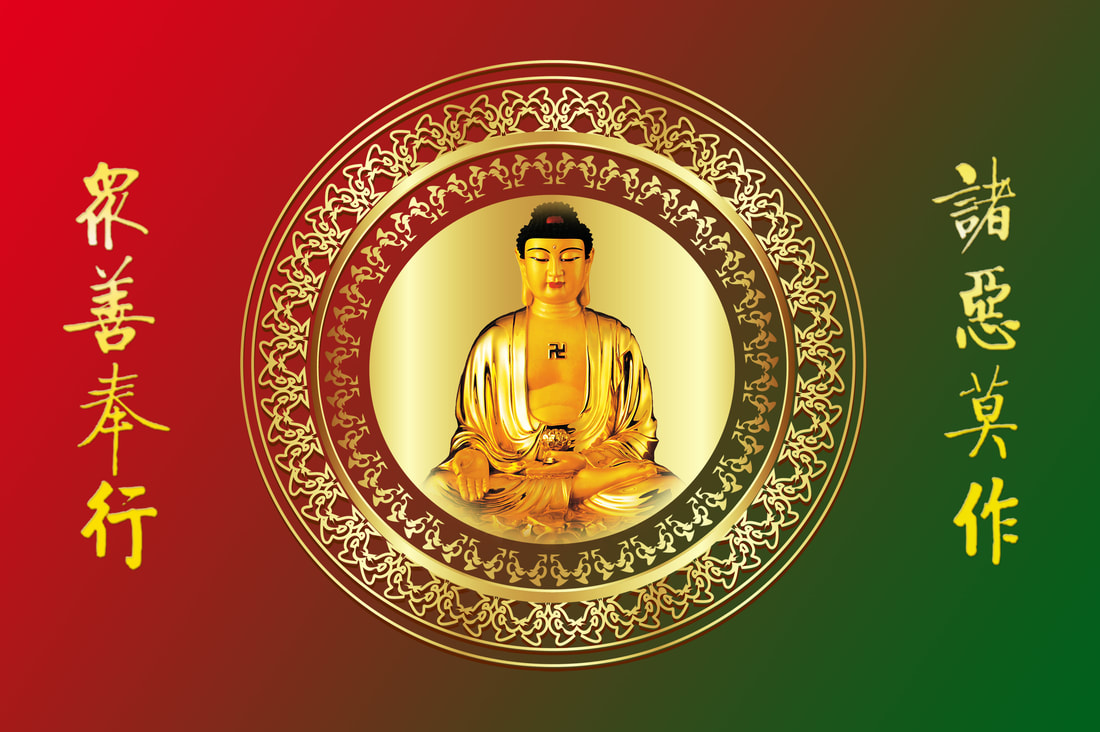
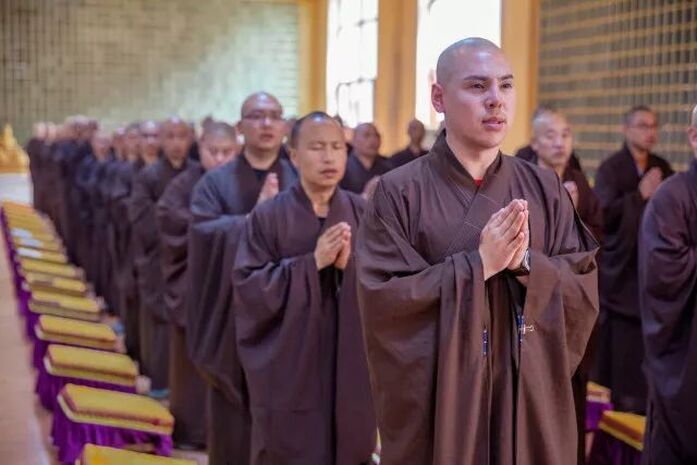
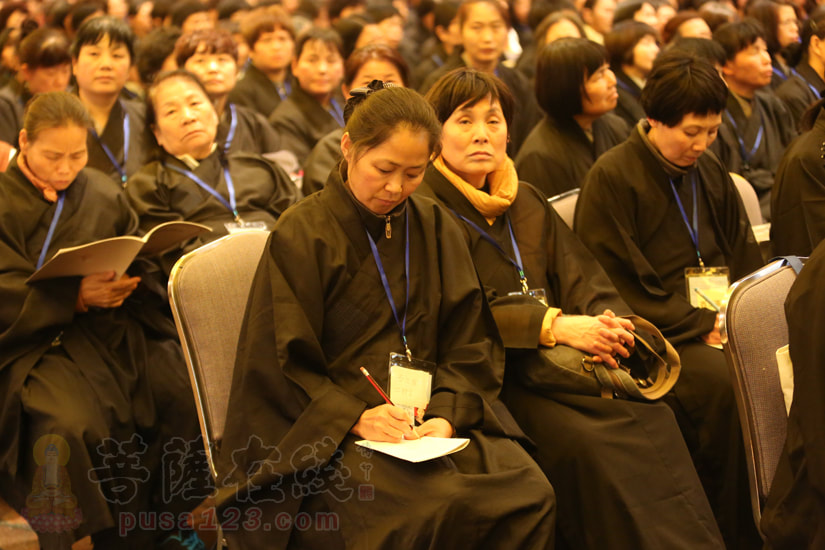
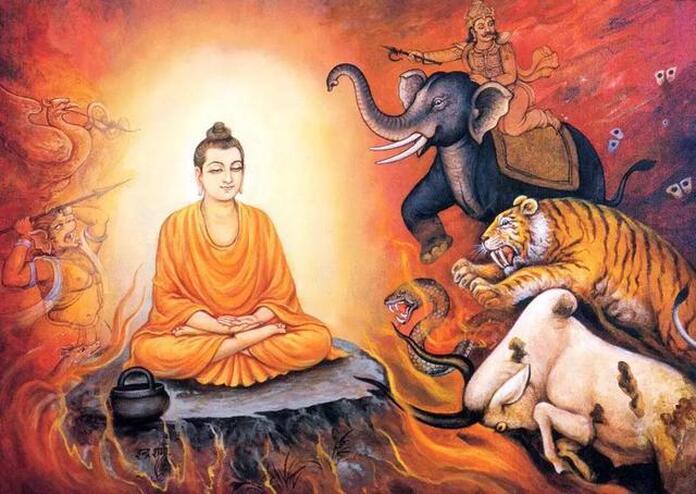
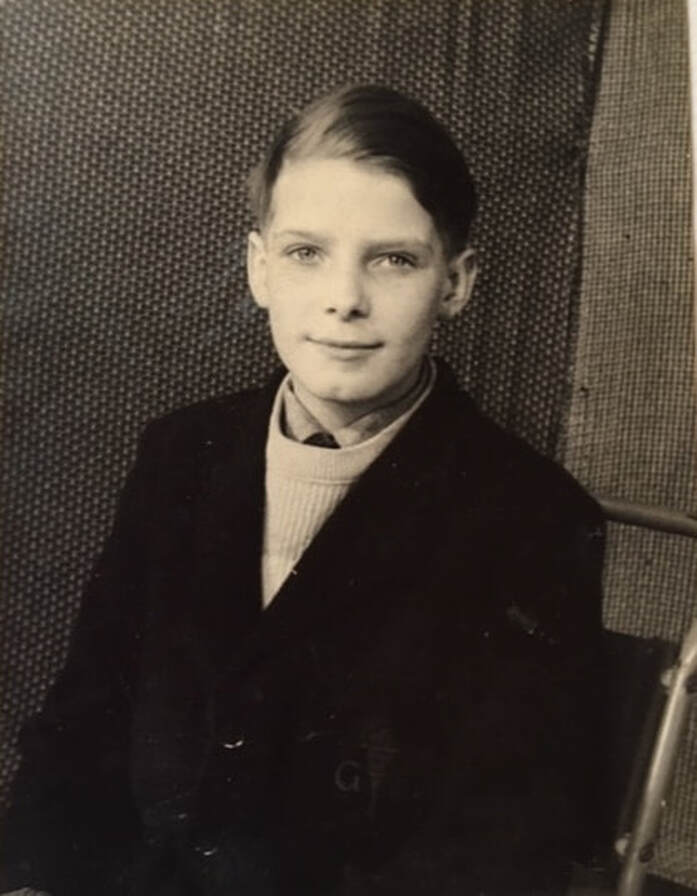
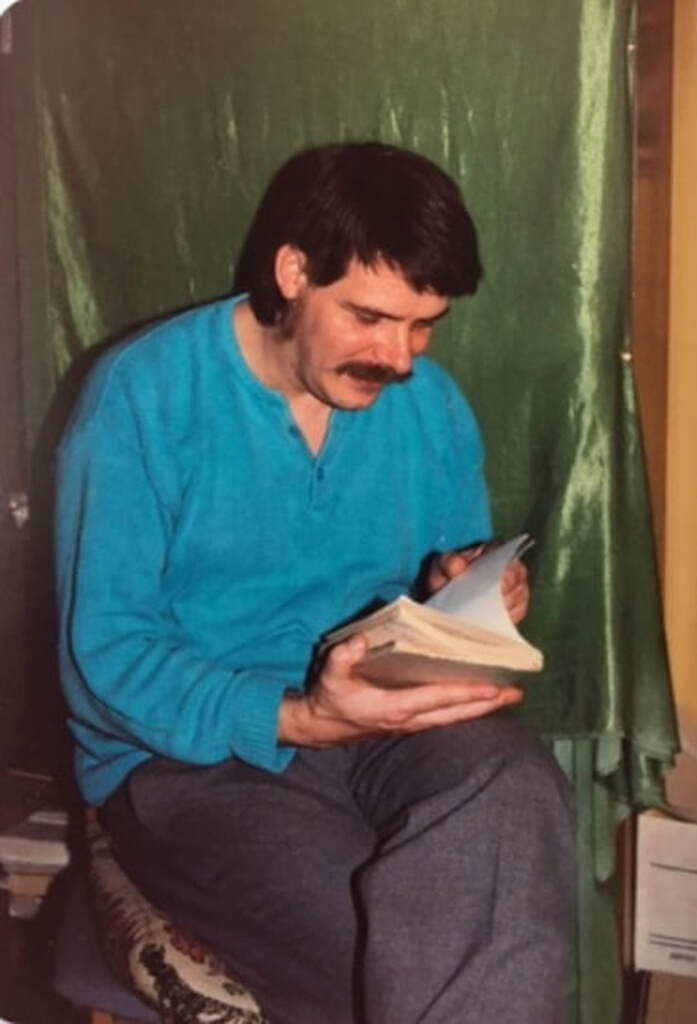
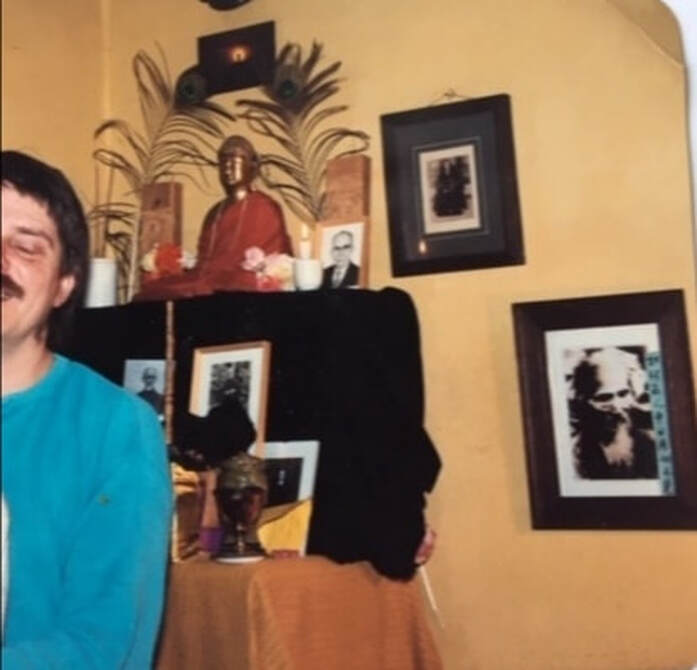
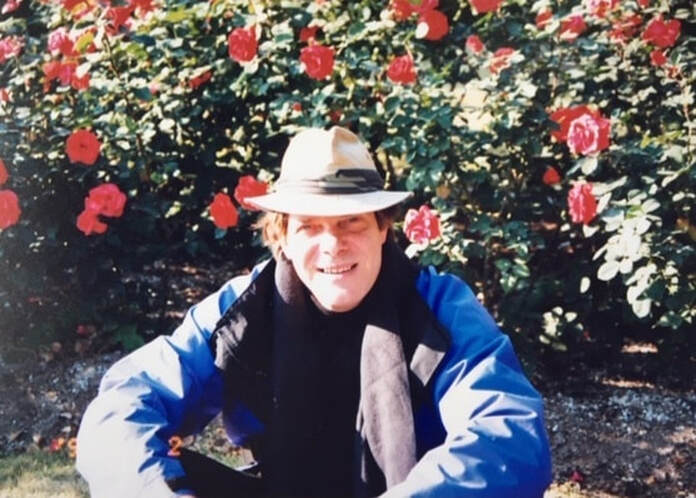
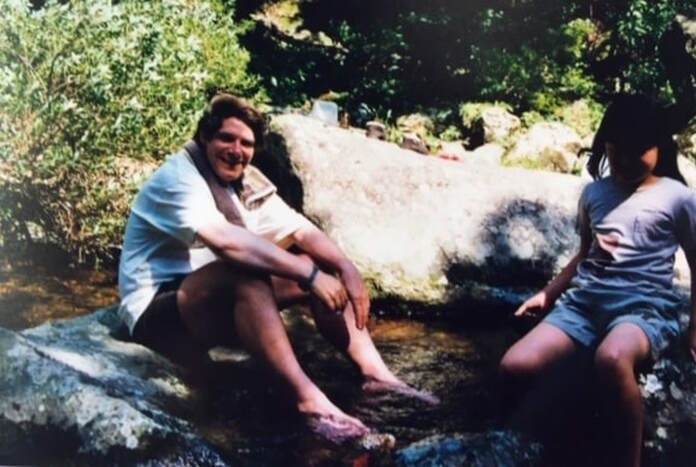
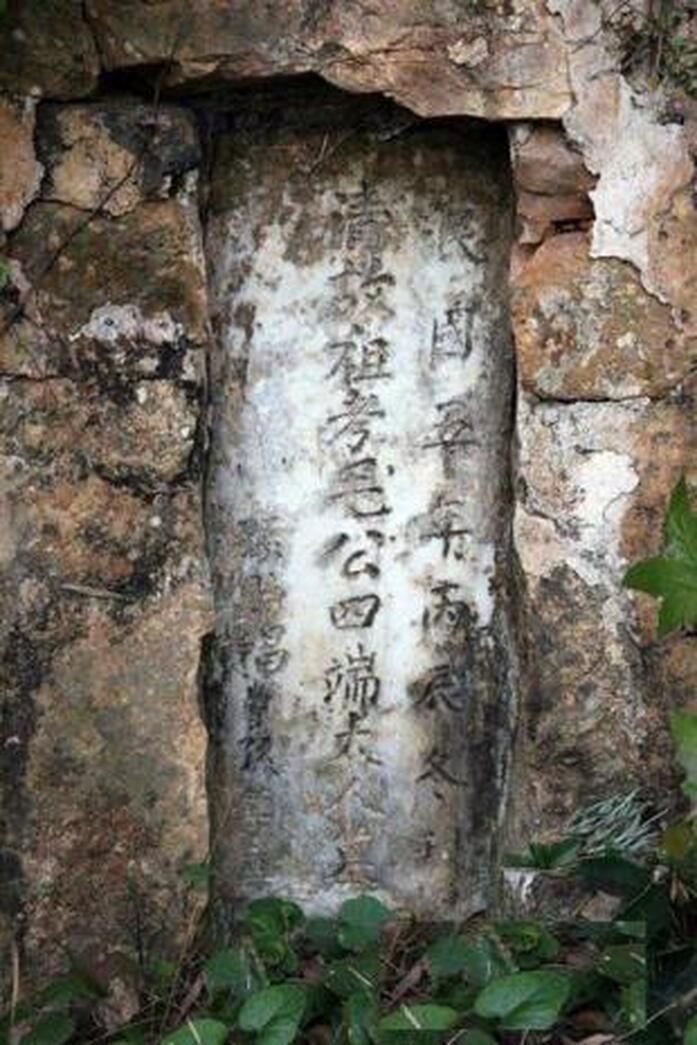
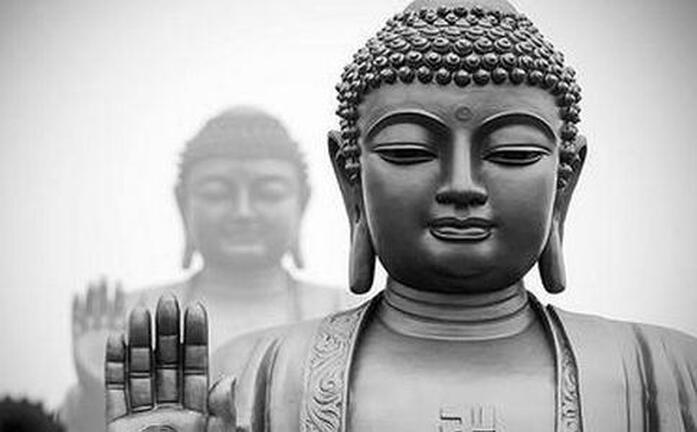
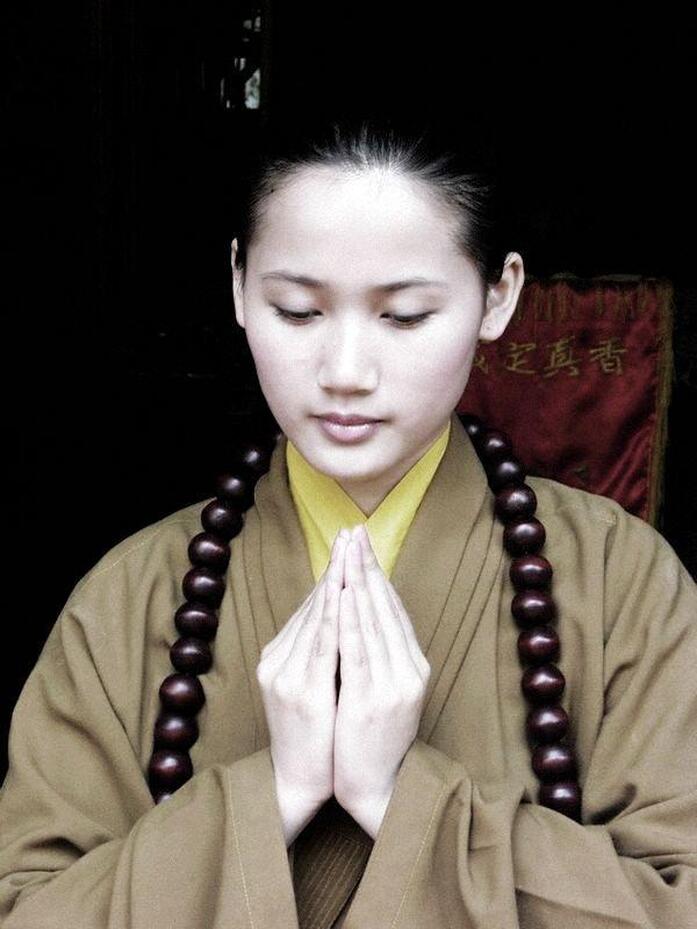


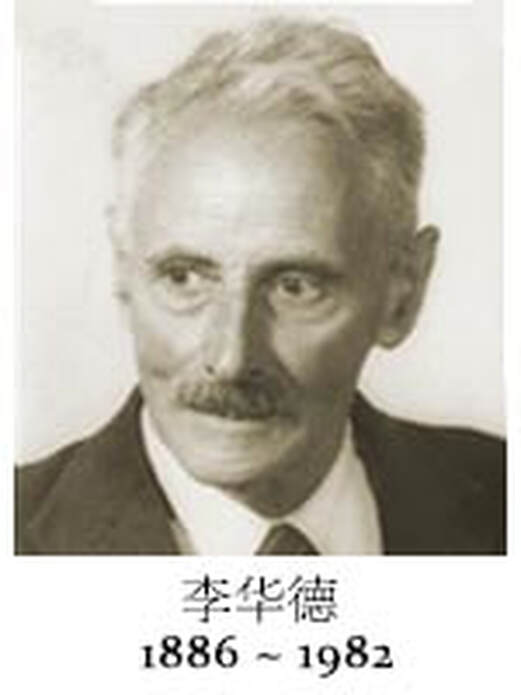
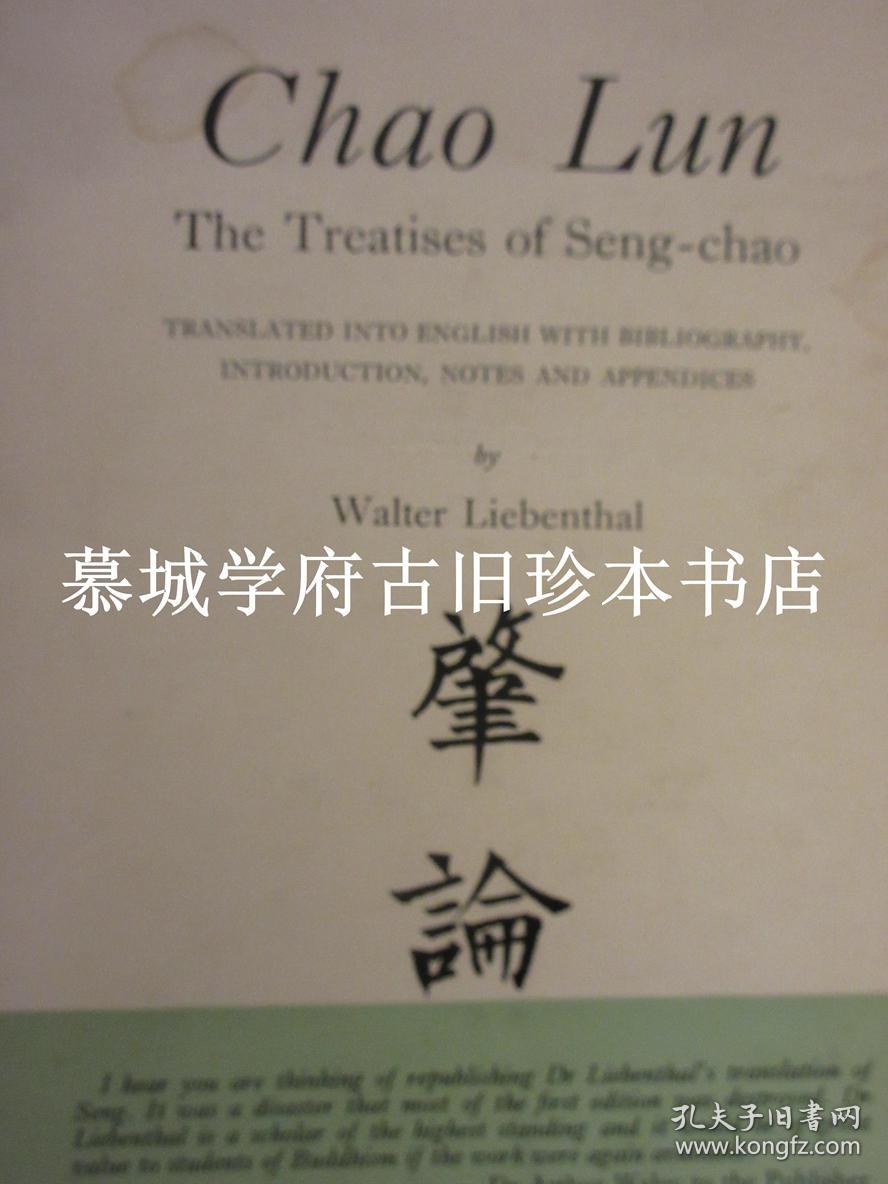
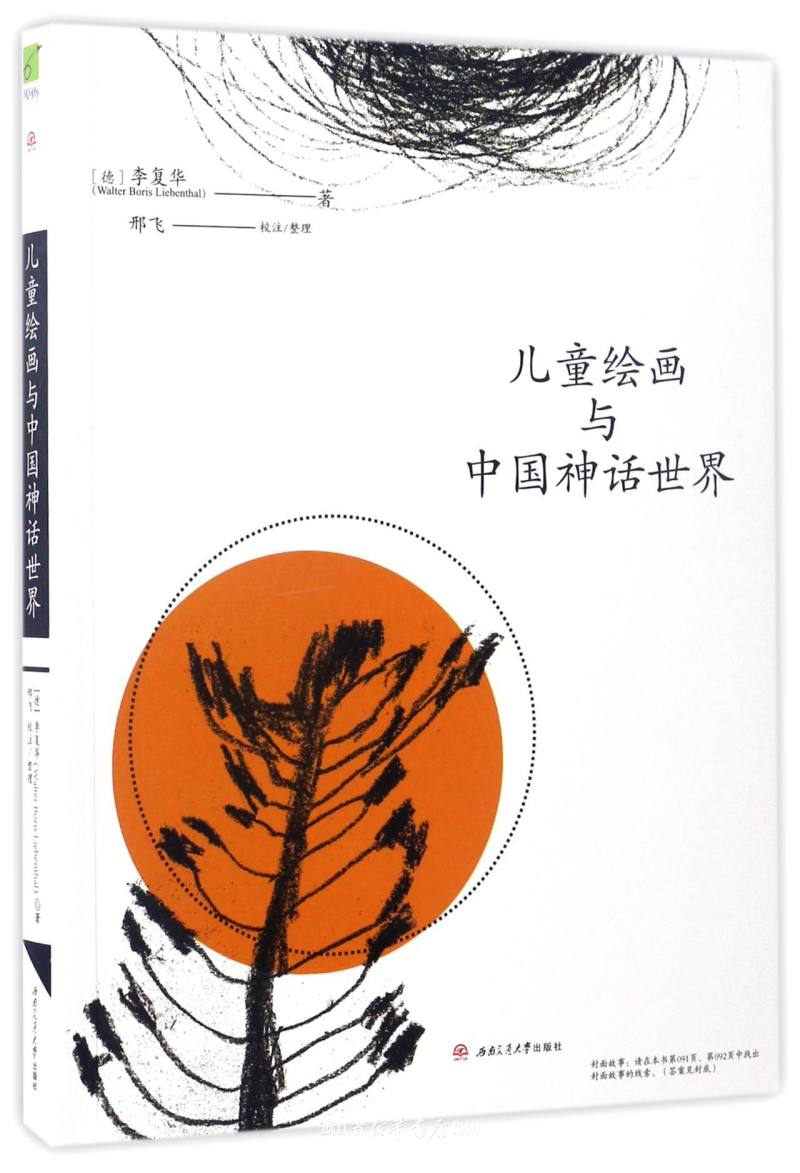
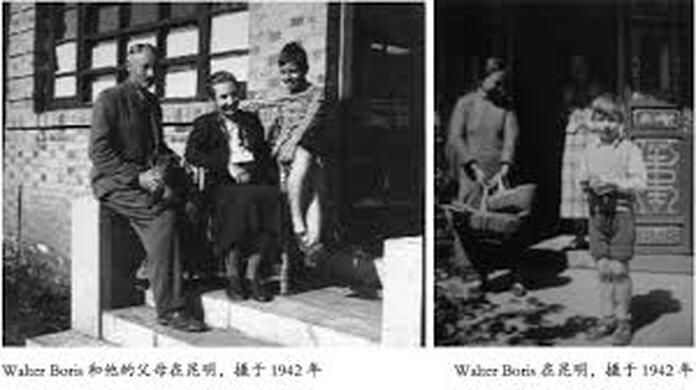
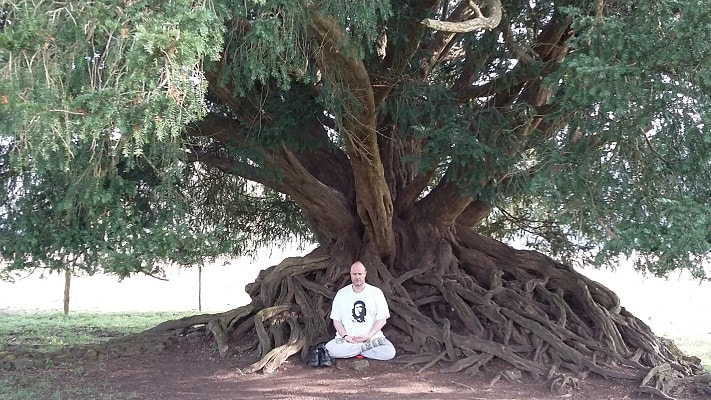
 RSS Feed
RSS Feed